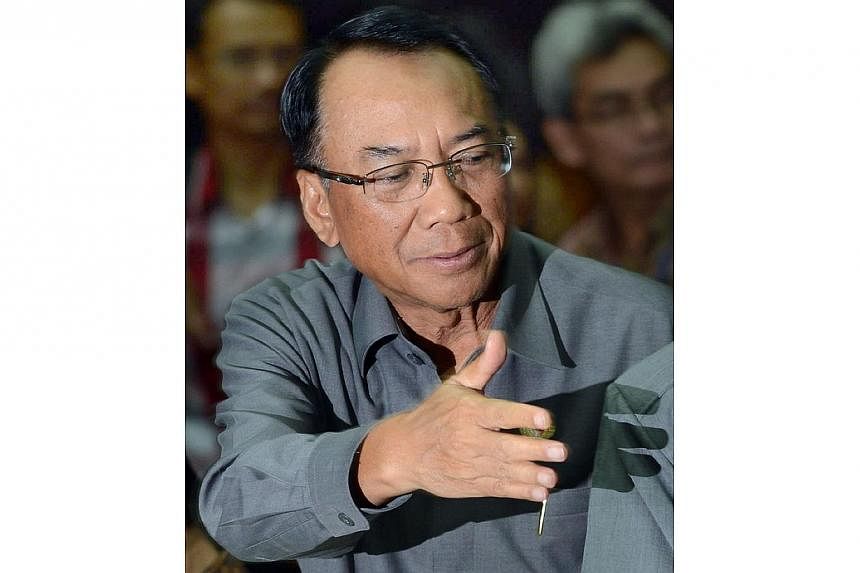JAKARTA (AFP) - Indonesia's energy minister stepped down on Friday, a presidential spokesman said, after anti-corruption officials named him a suspect in the latest graft case to embarrass the president's fractured Democratic Party.
Mr Jero Wacik resigned as minister for energy and natural mineral resources after officials accused him of raking in almost 10 billion rupiah (S$1.1 million) for his ministry's budget through illegal means.
Corruption Eradication Commission (KPK) officials named Mr Wacik a suspect on Wednesday, saying he had collected kickbacks and claimed money for arranging fictitious meetings. They accused him of extorting state funds and abuse of power.
"The letter of resignation was received by the President this morning. Perhaps he will appoint someone to fill in as an interim energy minister," presidential spokesman Julian Aldrin Pasha told reporters. Mr Wacik has neither admitted nor denied the accusations, saying only that he would respect the legal process.
President Susilo Bambang Yudhoyono's Democratic Party and his Cabinet have been rocked by a series of graft scandals that have undermined the leader's promises to clamp down corruption in one of the world's most graft-ridden nations.
The scandals have devastated the party that has headed a coalition government for 10 years, its popularity diving in April's legislative elections.
The KPK had been eyeing Mr Wacik since last year, when the chief of the country's main oil and gas regulator, Rudi Rubiandini, was caught red-handed being given stacks of US and Singapore dollars.
Rubiandini was found guilty in April of accepting more than US$1 million (S$1.25 million) in bribes from several companies and jailed for seven years.
Mr Wacik had recommended Rubiandini as head of the oil and gas agency, which comes under the authority of the energy ministry.
Mr Wacik has not yet been detained - the KPK typically arrests suspects weeks or months after they are named.
Indonesia's former sports minister, from the president's party and Cabinet, was jailed for four years in July in a corruption case linked to the construction of a sports stadium.
Dr Yudhoyono must step down in October after serving the maximum two terms, and will hand the presidency to Mr Joko Widodo, who won July's election.
Millions of Indonesians disillusioned with Dr Yudhoyono and his government have pegged high hopes for clean governance and reform on Mr Joko, who is seen as a new-generation leader.
Indonesia ranks 114th out of 177 countries and territories in Transparency International's Corruption Perceptions Index. A No. 1 ranking means the least corrupt.

